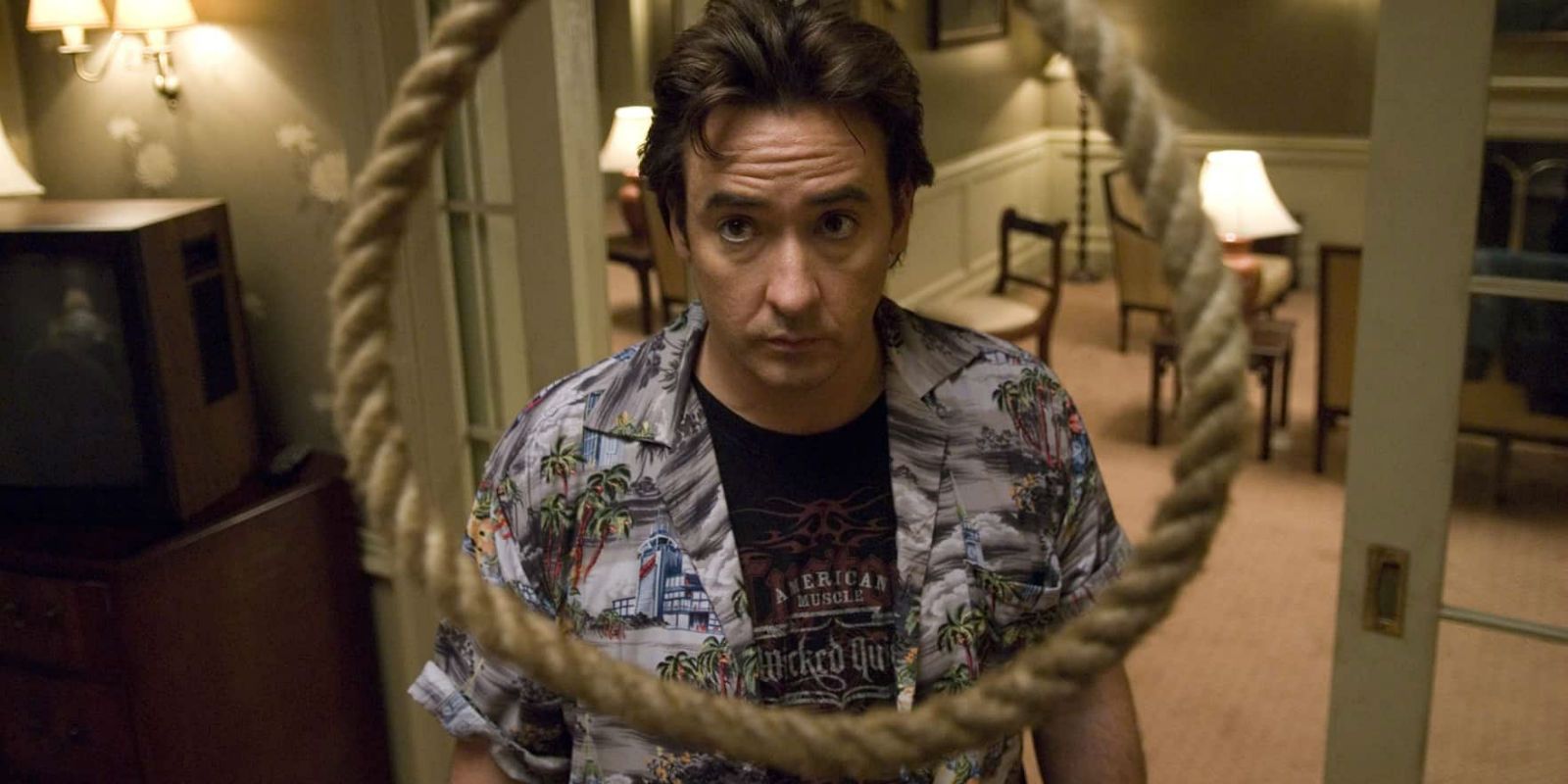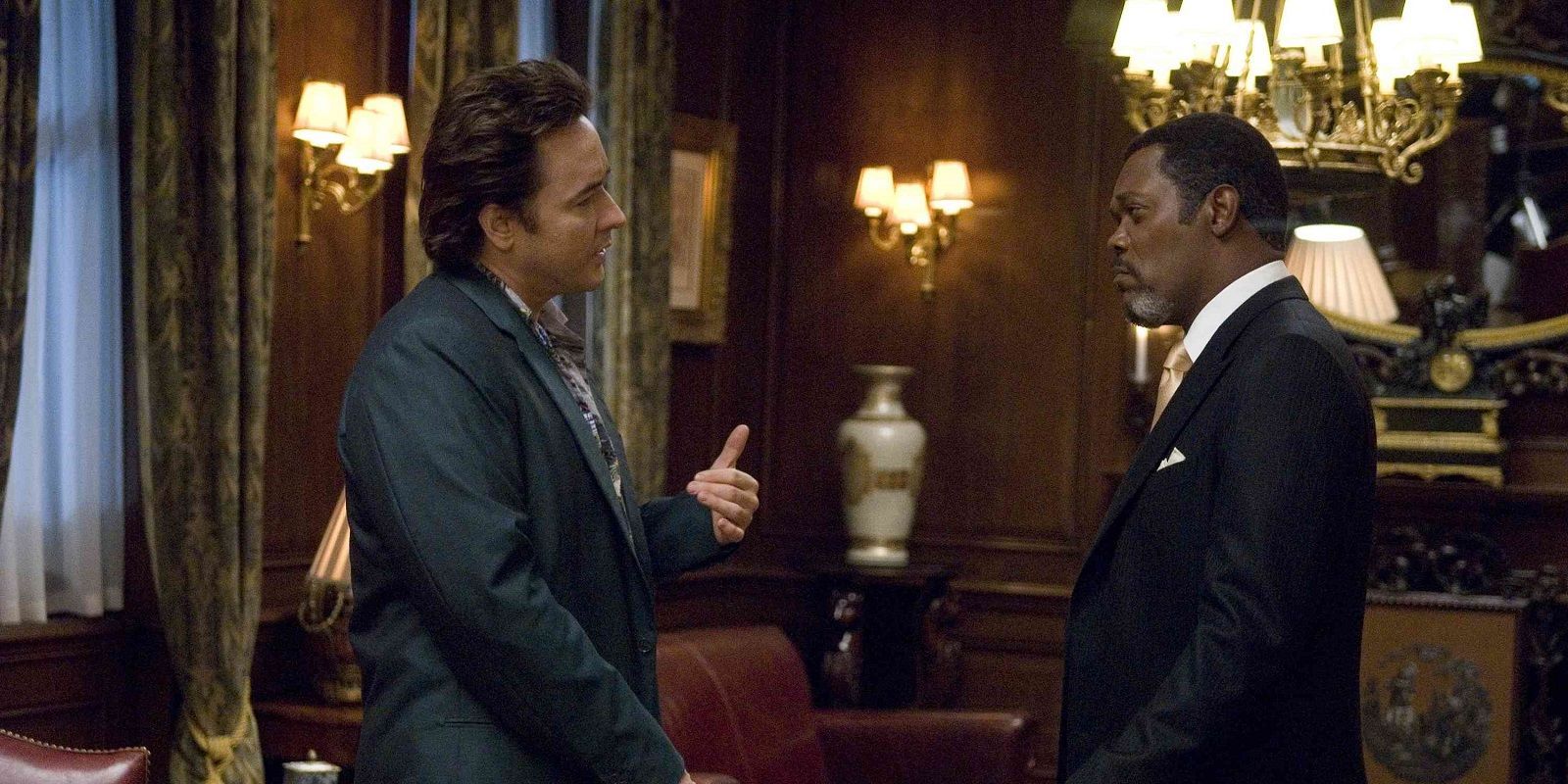2007's acclaimed Stephen King adaptation 1408 didn't necessarily end on an upbeat note, but its original conclusion was much darker still. When it comes to haunted hotels, King likely crafted the definitive story of that very specific sub-genre with his classic novel The Shining, which was of course adapted into an iconic 1980 film by director Stanley Kubrick. However, it's not King's only successful attempt at turning a hotel into a source of abject terror, as he also wrote the short story 1408.
1408 was first published in King's 1999 short story collection Everything's Eventual, which as usual for the author, was received exceptionally well. The story focuses on Mike Enslin, an author and paranormal investigator who, oddly enough, doesn't actually believe in the paranormal. Research for a new book leads Enslin to the supposedly haunted room 1408 at New York City's high-end Dolphin Hotel. Against the desperate urging of hotel manager Gerald Olin, Enslin books the room after threatening Olin with legal action. Unsurprisingly, he soon learns Olin was right.
Many King fans pointed to 1408 as the standout story of Everything's Eventual, and in 2007, a film adaptation of 1408 was released. Starring John Cusack as Enslin and Samuel L. Jackson as Olin, 1408 was a critical and commercial hit, and is generally considered one of the best King-based movies to date. Yet, the ending audiences saw in theaters was the end result of big changes to the original conclusion.
1408's Original Ending Was Much Darker - Why It Was Changed
The beginning of 1408's end is the same in both the theatrically released cut and the director's cut, which contains the originally planned conclusion. The room tries to get Mike Enslin to commit suicide, but he refuses, turning the tables by managing to light the cursed location on fire and burn it down, much to Olin's delight. In the theatrical cut, an epilogue scene sees Mike back at home with his wife Lily, who doubts his story of what happened until she hears their dead daughter's voice on Mike's tape recorder. It's certainly not a happy ending, but at least Mike survived.
In the director's cut, original ending, Mike succeeds in destroying the room but dies in the process. Lily is left emotionally shattered, and Olin sees a terrifying vision of Mike's burnt corpse, as well as Mike's daughter Katie. It's a bit ambiguous what happens after, but it would appear that Mike and Katie go on to the afterlife together. According to director Mikael Hafstrom, this ending wasn't used because test audiences didn't like it, believing it to be too depressing to see Mike not survive.
Interestingly, the original director's cut ending is the default on most home video releases of 1408, and is now considered by most fans to be the definitive conclusion. As is so often the case, test audiences seem to have gotten this one wrong. There are also two additional ending variants available on 1408's Blu-Ray release, one in which Mike dies and his publisher Sam somehow gets mailed the manuscript Mike wrote about the room during a false ending earlier in the film, and another where Mike lives that's just a slight change to the theatrical ending.


